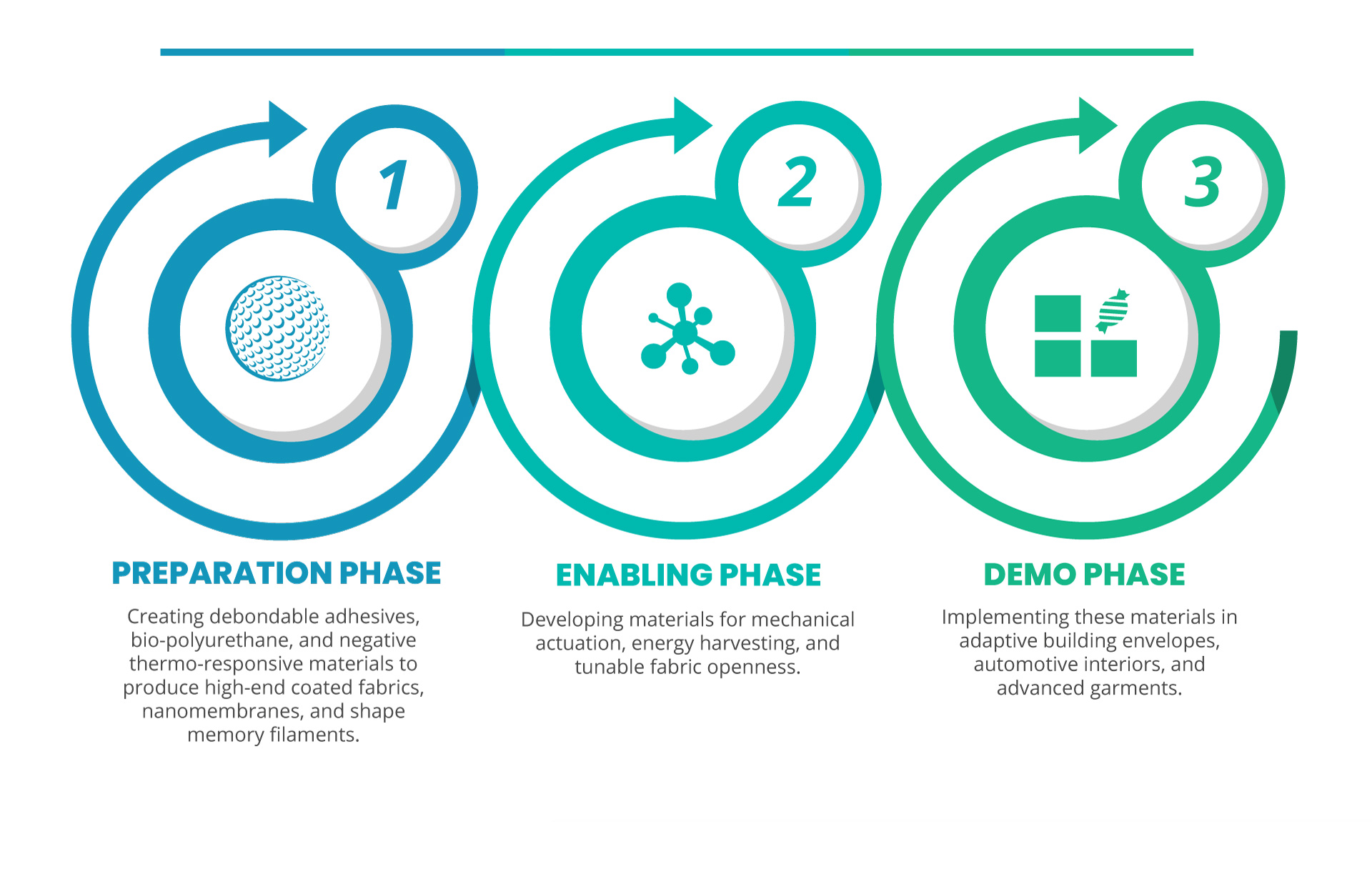
About the project
SUBBIMATT Project will develop biobased and bioinspired sustainable Smart Textile Materials to address current and future energy needs. The novel materials include debondable adhesives, bio-polyurethane, and negative thermoresponsive materials, leading to advanced applications in shape morphing building envelopes, automotive interiors, and adaptive garments.
SUBBIMATT’s primary goal is to develop a novel generation of sustainable biobased and bioinspired smart technical textile materials. The project is structured into three main phases:


Ambitious goals
Objectives
SUBBIMATT has defined several key objectives to maximize its impact and achieve its ambitious goals:
Impacts
The SUBBIMATT Project will drive the development of sustainable, bioinspired smart textile materials, fostering innovation in energy harvesting and adaptable textiles, ultimately enhancing consumer products while advancing the EU textile industry towards a circular and climate-neutral economy.

 “Co-Funded by the European Union (Project 101129911). Views and opinions expressed are however those of the author(s) only and do not necessarily reflect those of the European Union or the European Health and Digital Executive Agency (HADEA). Neither the European Union nor the granting authority can be held responsible for them.”
“Co-Funded by the European Union (Project 101129911). Views and opinions expressed are however those of the author(s) only and do not necessarily reflect those of the European Union or the European Health and Digital Executive Agency (HADEA). Neither the European Union nor the granting authority can be held responsible for them.”